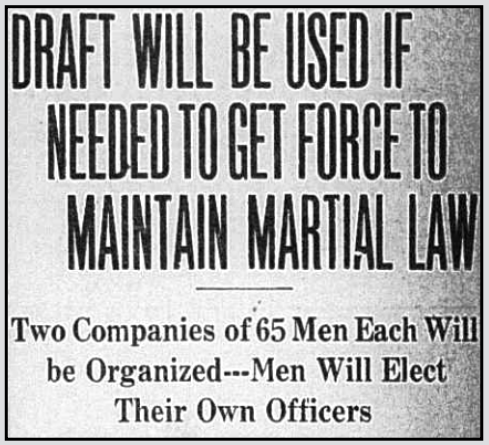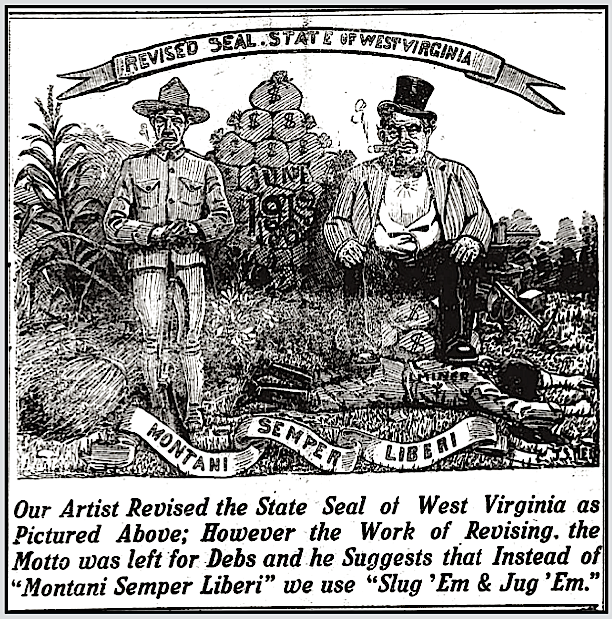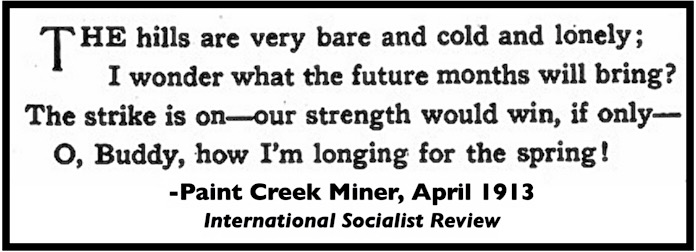 —————
—————
Hellraisers Journal – Saturday July 5, 1913
West Virginia Coal Miners’ Victory Turned into “Settlement”-Part II
From the International Socialist Review of July 1913:
How a Victory Was Turned Into
a ”Settlement” in West Virginia-by W. H.Thompson,
Editor Huntington Socialist and Labor Star[Part II of III]
Realizing that laudatory speech-making and persuasion were not going to induce these hard-headed delegates to sell the blessing of victory for a mess of burned pottage, they were compelled to resort to downright trickery and deceit.
A committee was appointed from among the delegates to draw up a counter-proposition, setting forth the terms upon which they would be willing to return to work, this to be submitted to the governor in answer to his proposal. The committee drew up the proposition which was presented to and endorsed by the convention. It was then turned over to the officials with instructions that they present it to His Highness.
The following day the convention was given to understand that Hatfield had accepted their proposal as an amendment to his proposition. The two documents were then read and a vote was taken upon what the delegates afterwards, and now, claim they believed was the acceptance of their own proposal. However, the two propositions had been juggled in such a manner, by those who are adepts in such arts, that the miners-necessarily untrained in the gentle ways of parliamentary legerdemain, had in reality voted for and accepted the original odious Hatfield offer, their own proposition having been promptly turned down by that gentleman with the remark that he “could not force the mine owners to comply with it.”
These things were not made public, of course, until after the convention had adjourned. You can imagine the surprise and chagrin of the miners upon being informed by the daily papers that they had tamely submitted to the dictator’s demands after he had spurned their own offer of a basis of settlement.
This information was followed by orders from headquarters at Charleston to the effect that the miners return to work at once. This they refused to do. Then the officials, escorted by detachments of the governor’s hated yellow-legs, visited the tented villages in the mountains and bluntly informed the rebellious strikers that their relief would be cut off at once and the tents burned over their heads if they did not submit to the settlement and return to work.
Under these circumstances there was nothing to do but obey and the strikers began to apply for work at the mines. All those known to have been most active during the strike were refused employment. These to the number of 400 are still idle, for the good and simple reason that they are very effectively black-listed at every coal mine in the valley. All others are working under the same, or worse conditions than existed before the strike began.
Of course it was thoroughly realized by the powers that be that there was one remaining obstruction in the way of a complete establishment of their neatly planned “settlement.” That was the Socialist press.
Editor C. H. Boswell, of the Charleston Labor Argus, had been approached some months before and it was insinuated that a “settlement” might be arranged. He promptly and forcefully informed the “approachers” that The Argus was fighting for victory for the rank and file and that if any crooked work was attempted something would drop. Boswell was arrested a few days later and safely planted in the bull pen. The Argus, however, had continued, and the Huntington Socialist and Labor Star had also begun to show an inquisitive interest in the happenings affecting the strikers. These two agencies must be silenced, temporarily at least; decided the three-armed combination most interested in the success of the settlement. No sooner said than done. Martial law was in effect in the coal field, so the commander-in-chief simply dispatched a detail of yellow-legs to Charleston to confiscate The Labor Argus and “jug” Fred Merrick, who was suspected of being editor pro tem. The same gentle methods of suppression were used on the Huntington Star.
With all those who would doubtless make an effective protest against the deal being put over on the fighting miners by the unholy trinity, safely “jugged,” the settlement proceeded apace. The coal operators, the prostituted press and the U. M. W. of A. officials all joined in singing hosannas of praise for the highly satisfactory manner in which His Highness, Hatfield, had settled the strike.
But the last act of despotism on the part of the trinity, the confiscation of the Socialist papers, brought on unexpected complications. The Socialist and labor papers, and hundreds of the capitalist papers throughout the country severely condemned this blundering attack upon the rights of a free press. The National Socialist organization was at last shocked into action and decided to send a committee into West Virginia to find out if we really were having a fight down here. The committee arrived, established headquarters at the most expensive hotel in the capitol city and immediately went into conference with the leaders of the U. M. W. of A.
From conferences with this branch of the triumvirate the committee naturally drifted into conferences with the other branches, Hatfield, the local politicians and the coal barons.
After a week devoted exclusively to these secretive but doubtless instructing conferences, and before they had visited the mining camps or talked with the local Socialists, members of the committee began talking-to the capitalist papers.
The sayings attributed to them had a familiar sound. They were practically the same sentences that the U. M. W. of A. officials had used, and that the newspapers themselves had used, and that Hatfield himself had used, to justify existing conditions and official anarchy.

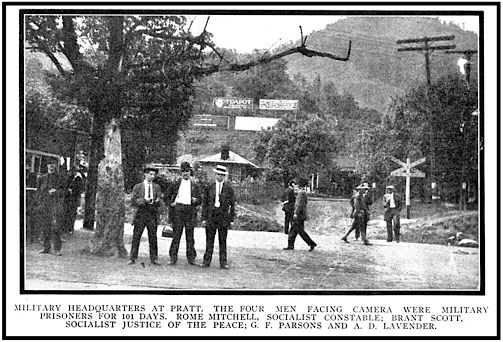
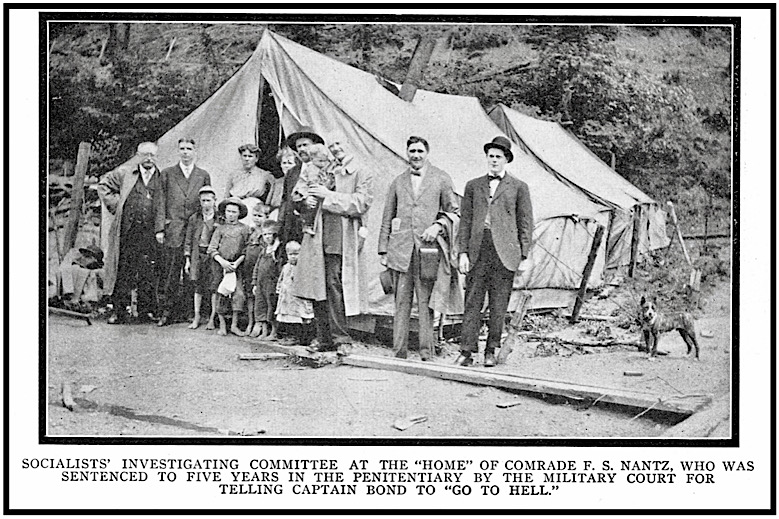
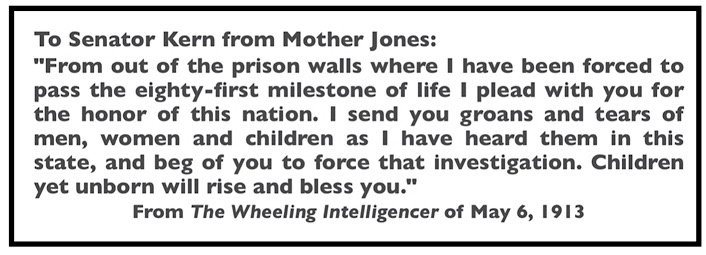 —————
—————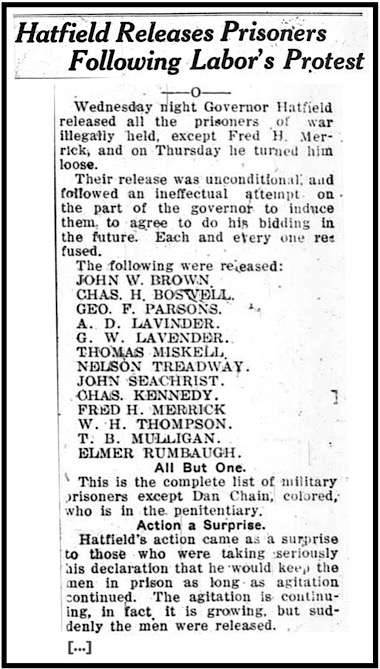
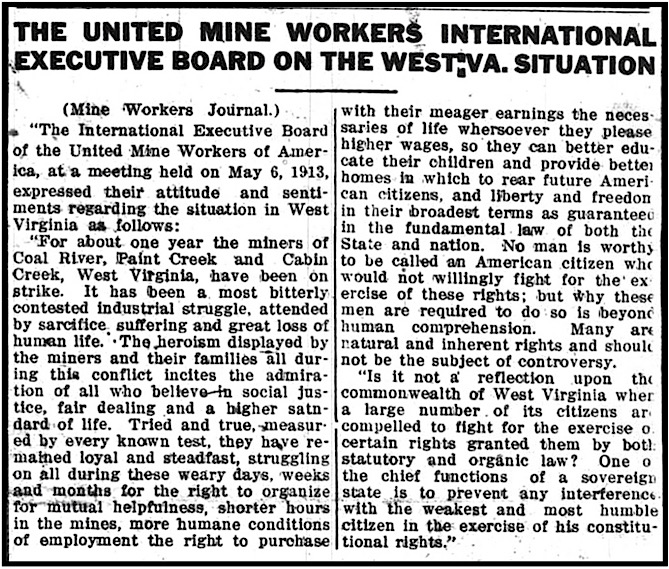
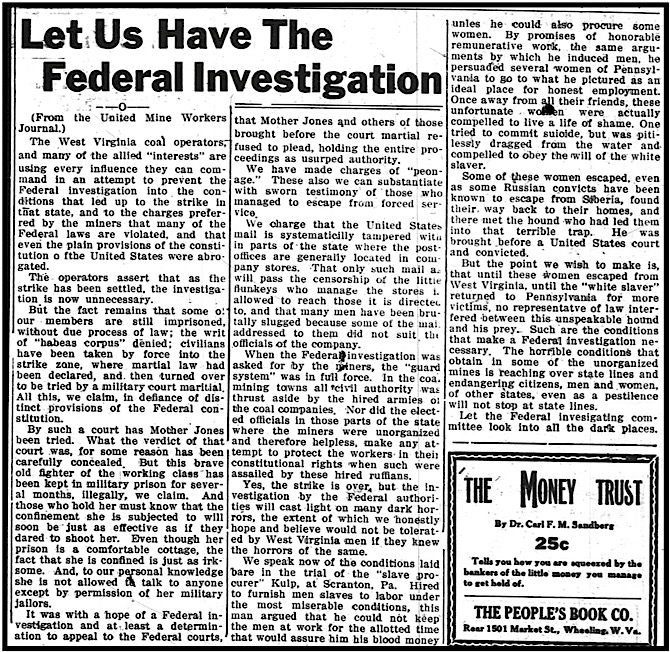
 —————
—————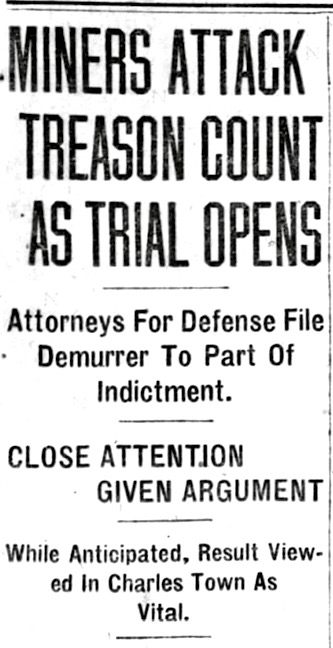
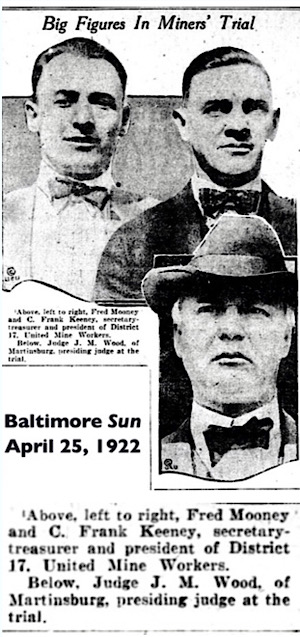
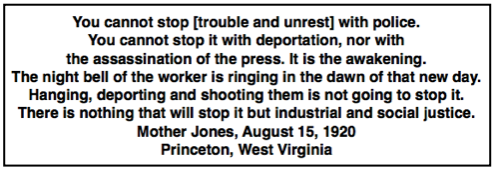 —————-
—————-
